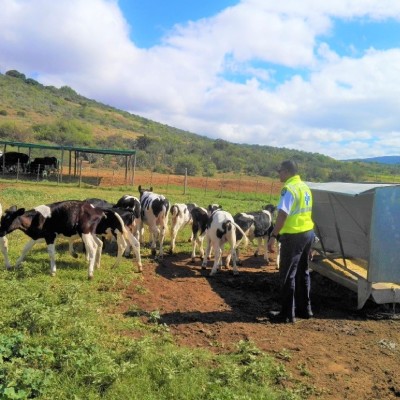South Africa’s prison population is self-sustained in terms of food provision. This means that some prisons across the country have farms where animals are raised for meat, eggs, and milk. South Africa has 22 such farms which form part of the Department of Correctional Services agricultural portfolio. Kwa-Zulu Natal, Eastern Cape and Western Cape have four farms each with farm animals. Gauteng and the Free State each have three farms with farm animals; The North West Province has two farms with farm animals, and Mpumalanga and Limpopo Province have one farm each with farm animals. Some of these farms also have fully functional and registered abattoirs for the slaughter of poultry, cattle, sheep/goats, and pigs.
Prison farms operate in much the same manner as any other commercial farming enterprise, however, they are multi-faceted meaning that each farm may have some or all of the following: abattoir, beef production, dairy production, piggery, poultry production (broilers and layers), and small stock (goats and sheep). Prison farms have the same inspection methods attributed to commercial farms.

The NSPCA is committed to improving the quality of life of all farm animals at prison farms and the Farm Animal Protection Unit dedicated Inspectorate, guided by the Animals Protection Act No. 71 of 1962 and relevant South African National Standards, inspect all prison farms across the country addressing different facets of the life of these animals including:
- Health inspection of entire herds in all stages of production on farms to ensure all basic requirements are met;
- Inspection of facilities to ensure they meet minimum requirements and do not cause injury or stress to any animal;
- Inspection of animals for signs/evidence of inhumane husbandry practices employed. Practices such as ear clipping/cropping is not a legal requirement in terms of the Animals Identification Act No. 6 of 2002 and this is being phased out in prison farms;
- Monitoring of slaughter to ensure humane handling and slaughter is being implemented;

